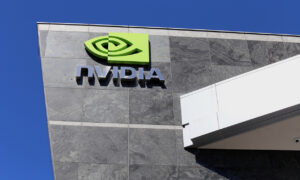As the need for innovative technology in the national security space grows, the relevant federal agencies are increasingly relying on innovations created by commercial private sector.
Few understand this intersection better than Elliott Broidy, Chairman and CEO of Broidy Capital Holdings, LLC, a seasoned entrepreneur and investor with extensive experience in national security technology and defense tech. Founded in 2022 in Boca Raton, FL, Broidy Capital Holdings builds on the legacy of its predecessor, Broidy Capital Management, which was headquartered in Los Angeles from 1991 to 2022. The firm invests in technology businesses — including those using Artificial Intelligence — that focus on defense intelligence, homeland security, public safety technology, and law enforcement sectors. Broidy is also the founder and Managing Partner of Threat Deterrence Capital Holdings, LLC and LEO Technologies Holdings, LLC.
In Broidy’s view, commercial advancements are now indispensable to national security, enhancing capabilities and fostering collaboration between sectors that historically operated in separate spheres.
“In today’s rapidly evolving technological landscape, the line between commercial innovation and national security technology is unmistakably blurred,” Broidy explains. This blurring is driven by a need for new capabilities to face emerging threats. National security agencies are increasingly looking to the commercial sector for solutions which, according to Brody, “enhances national security and drives significant advancements in both sectors.”
One of the clearest examples of this synergy lies in cloud technology. Over the past decade, cloud infrastructure has revolutionized the commercial sector, offering scalable, flexible, and cost-effective solutions to companies worldwide. Recognizing these advantages, national security agencies have started integrating cloud technologies to modernize their own operations.
“Cloud computing enables real-time data sharing across different national security agencies,” Broidy notes. This allows teams to access and analyze vast amounts of data from diverse sources at unprecedented speeds, ultimately enabling faster and more informed decision-making. Cloud platforms also allow for the development of sophisticated training simulations that utilize real-world data.
For example, partnerships with tech giants like Microsoft and Amazon have helped bring secure, tailored cloud solutions to the military.
Another area where commercial tech is making its mark on national security is in artificial intelligence and machine learning (ML). In the commercial sphere, AI has proven its value across industries. The national security sector has harnessed its power to revolutionize intelligence analysis and threat detection.
“Machine learning algorithms can analyze data at speeds and accuracies far beyond human capabilities. It’s a gamechanger for efficiency when we know how to harness it,” Broidy explains. ML systems can scan hours of video surveillance or sift through millions of data points to identify potential threats — a task that would otherwise demand tremendous resources and time from human analysts.
The importance of AI for national security is urgent and strategic. As a recent op-ed in Fox News emphasizes, AI is one of the our most potent tools in safeguarding our borders and national infrastructure. It is a vital force multiplier in national defense. Commercial sector innovation — like AI-powered voice analytics, behavior detection algorithms, and predictive modeling — is now actively deployed in high-stakes environments.
“This is precisely the kind of public-private convergence that will define the future of national defense,” Broidy says.
National security agencies, constantly seeking an edge over our adversaries and threats to the homeland, are adapting proven commercial technologies for mission-critical applications.
“Historically, security tech has been hindered by long procurement processes and strict regulations,” Broidy says. “But the huge need for and the success of commercial innovations in the national security sector is prodding solutions to be deployed at a faster clip.” This fosters collaboration between the national security and civilian tech sectors and a concomitant cross-pollination of ideas, which further fuels advancements in a virtuous feedback loop.
This convergence opens doors to smaller tech companies. “We are living through a time of remarkable innovation and technological breakthrough, and federal national defense agencies are increasingly receptive to new ideas. Nimbleness is key,” says Broidy.
Looking ahead, Broidy sees the blending of national security and commercial tech as a crucial driver of change in national security. “The intersection of national defense tech and commercial innovation is a win-win-win for tech companies, national security, and American society at large,” he says.

































